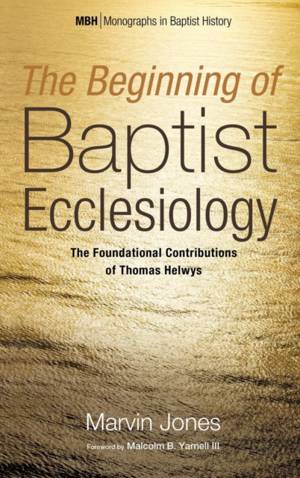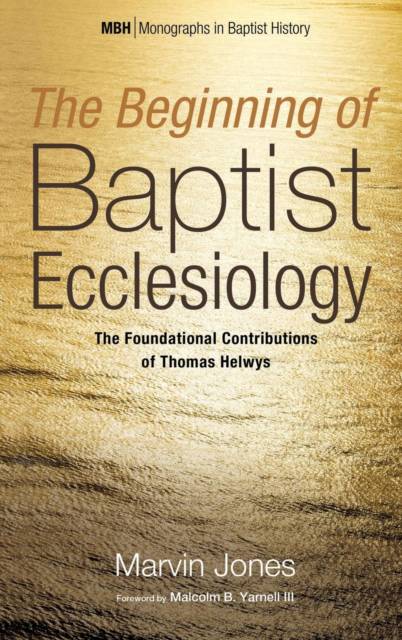
Je cadeautjes zeker op tijd in huis hebben voor de feestdagen? Kom langs in onze winkels en vind het perfecte geschenk!
- Afhalen na 1 uur in een winkel met voorraad
- Gratis thuislevering in België vanaf € 30
- Ruim aanbod met 7 miljoen producten
Je cadeautjes zeker op tijd in huis hebben voor de feestdagen? Kom langs in onze winkels en vind het perfecte geschenk!
- Afhalen na 1 uur in een winkel met voorraad
- Gratis thuislevering in België vanaf € 30
- Ruim aanbod met 7 miljoen producten
Zoeken
€ 63,95
+ 127 punten
Uitvoering
Omschrijving
The basic question, "Where did Baptists come from and why?" has two camps that offer differing explanations: (1) the English Separatist camp produced the ministries of foundational Baptists, John Smyth and Thomas Helwys, thus takes credit for Baptist origins, and (2) the Anabaptist movement is the alternative camp, understanding either a direct connection via lineage back to the infamous Swiss Brethren or an indirect connection via Anabaptist teachings. Anabaptist ecclesiology is very much akin, if not in some ways identical, to modern Baptist ecclesiology. In fact, the Baptist church, led by John Smyth and successively by Thomas Helwys, resembled both English Separatist and the Anabaptist ecclesiology with notable differences between both entities. When The Mystery of Iniquity is properly understood, as Helwys intended, the reader will grasp the logical reasons that the Baptist church in 1607 was akin to both the English Separatist and the Anabaptist and yet differed from both. In The Beginning of Baptist Ecclesiology, Marvin Jones give a fresh voice to Thomas Helwys's opinion that a Baptist church is a viable New Testament church, and provides further relevant material rationale for the conversation concerning Baptist origins.
Specificaties
Betrokkenen
- Auteur(s):
- Uitgeverij:
Inhoud
- Aantal bladzijden:
- 174
- Taal:
- Engels
- Reeks:
- Reeksnummer:
- nr. 6
Eigenschappen
- Productcode (EAN):
- 9781532614606
- Verschijningsdatum:
- 28/06/2017
- Uitvoering:
- Hardcover
- Formaat:
- Genaaid
- Afmetingen:
- 152 mm x 229 mm
- Gewicht:
- 403 g

Alleen bij Standaard Boekhandel
+ 127 punten op je klantenkaart van Standaard Boekhandel
Beoordelingen
We publiceren alleen reviews die voldoen aan de voorwaarden voor reviews. Bekijk onze voorwaarden voor reviews.









